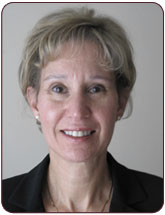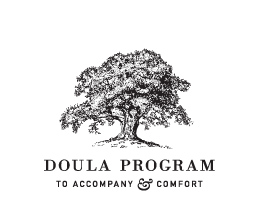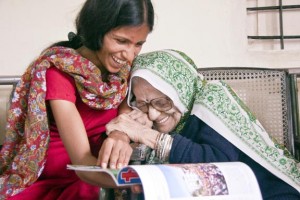What is an End of Life Doula? An Interview with Amy Levine - The doula volunteer program in New York City helps lessen loneliness for people with life-limiting illness
 Today we talk with Amy Levine, who designs and implements programs and conducts interactive training for healthcare and social service professionals. Her expertise includes designing specialized volunteer programs for hospital-based palliative care services, and she provides consultation to healthcare organizations working to enrich the lives of people experiencing life-limiting illness.
Today we talk with Amy Levine, who designs and implements programs and conducts interactive training for healthcare and social service professionals. Her expertise includes designing specialized volunteer programs for hospital-based palliative care services, and she provides consultation to healthcare organizations working to enrich the lives of people experiencing life-limiting illness.
Amy is the Director of theNew York City based Doula Program to Accompany and Comfort, a volunteer program that trains, supervises, and assigns volunteers whose visits help to lessen loneliness for people experiencing life-limiting illness. The doula volunteer program is the first of its kind, and we’re excited to have Amy to teach us about it and what we can learn from the work they do.
Dana: Can you begin by defining “end-of-life doula”?
Amy: For our program the doula volunteer is engaging in a relationship in an end stage of life when most people are not making new friends. The premise is that illness is lonely, especially life-threatening illness. Our doula volunteers are assigned to someone who may have a year left in their life – though we don’t have hard, fast rules. Our criteria is that someone has been diagnosed with life-threatening illness.
The doula volunteer is about engaging in relationship, seeing someone beyond their illness. We focus on seeing that person, not the place or condition. It’s the relationship. They’re getting to know [the patient], however that person is at any point. Weekly visits can vary; there’s no agenda. [Volunteers] are not there to get someone to talk about anything in particular. We allow somebody to be who they are. People are more than “being old”, or having cancer. We’re there to allow them to be who they are. It’s about being present, available.
Dana: How does your work differ from that of a hospice worker?
Amy: Hospice is a medical service, first, and not everybody chooses it. The requirement for hospice is that you have to have six months or less to live. Our referrals all come from professionals in the medical or social services, but we do not provide a medical service. Someone, a doctor or social worker, is usually in place seeing to someone’s needs, in addition to the doula volunteer.
We don’t look at medical records, though the diagnosis is important. Rather than set a requirement for life expectancy, we ask a medical professional who is seeing to someone’s needs, “Would you be surprised if this person were alive in a year?” and follow their referral.
Our doula volunteer can visit a person no matter what choices that individual has made about their care. With hospice, there are many regulations regarding other services being provided. Additionally, the volunteer is committed to the person, regardless of location. They’re not just visiting in the hospital, or facility. They will be with a person wherever they are.
 Dana: Do you work with hospice patients?
Dana: Do you work with hospice patients?
Amy: Yes. Our referrals often come from hospice or palliative care teams. Some volunteers are assigned to a palliative care team inpatient unit at a hospital, when several patients are being visited. We also work with and take referrals from outpatient oncology, home care, religious organizations, hospitals, aging social services organizations, etc. We have a multitude of organizations who may be caring for people who are seriously ill.
[Our criteria] is as simple as someone facing the end of life, and that indiv is alone – and that can be defined in different ways. Sometimes it just means being ill, because that can be isolating, even with friends, family, and caretakers around. When someone is seriously ill, friends and family are grieving, and being present and listening can be painful for them. The doula volunteer is an outside person who can be present for that individual.
Dana: You mentioned there’s no agenda. Do you give doula volunteers suggested activities or discussion prompts or anything to guide visits?
Amy: No. Our doula volunteer is trained and receives continuing guidance through weekly check-ins and meetings to talk about their experiences. But, people always think there’s something to be done. A doula just allows a person to be who they are. That could be just sitting and watching television or talking together, sometimes going out to a show, or other activity. In those cases, we have to work to ensure their basic needs are taken care of by the professionals, but the volunteer is just there to let the person be who they are.
We encourage them to let it evolve, like you would getting to know anyone else. At different stages of illness, people are feeling more engaging in activities or less. There are times when the doula will read to that person, or just be present. It’s about getting to know somebody, rather than having a checklist.
Boundaries are definitely necessary, because volunteers are just there one to two hours a week, and they’re not healthcare workers, or household helpers, etc. Our training focuses on recognizing what the volunteer is feeling or experiencing when talking to someone who is facing a serious illness, so they know how to be present for that person.
Dana: Your experience includes patient care with hospice — what draws you to doula work?
Amy: When I first learned of it, I was a social worker involved in mental health and behavior … I learned of the program at the beginning through a colleague. I thought This is the most decent work I have ever heard of. This is what we should be doing as human beings for each other. It struck me as work that was perfect for who we all are as human beings.
This is what we should be doing as human beings for each other.
I was director of psychology programs at a hospital and loved it, but was drawn by the fundamental decency of the doula program. I would want somebody at my side and know me beyond being “a person with illness”. I asked to go through the doula training without knowing why, just knowing I was drawn to the work. I worked in hospice at the same time, then became a consultant with the doula program.
 What drives me is that it’s about a bigger conversation about how we view this end stage in our lives. We live alongside very serious illness and it’s a period of time when people are so terribly lonely. I don’t think that’s changing. The need will grow. These interventions allow people to live alongside life-threatening illness, rather than be “a person who is dying’. We all want to be seen and known. That doesn’t change just because you have been diagnosed with a life-threatening illness. This organization is focused on expanding that conversation.
What drives me is that it’s about a bigger conversation about how we view this end stage in our lives. We live alongside very serious illness and it’s a period of time when people are so terribly lonely. I don’t think that’s changing. The need will grow. These interventions allow people to live alongside life-threatening illness, rather than be “a person who is dying’. We all want to be seen and known. That doesn’t change just because you have been diagnosed with a life-threatening illness. This organization is focused on expanding that conversation.
When someone is ill, activities are limited. And so much of how we define ourselves in society is about “What do you do?” People can lose a sense of their value when they’re limited by illness.
Dana: For our readers not in the New York City area, where can they learn more or access doula services?
Amy: There is no other program in the country. We provide consultation to organizations who might adopt similar services, but no dedicated doula services exist anywhere else. The best thing to do is go to our website and contact us – there are some amazing organizations and services that we can recommend around the country.
If there’s an organization or individual who wants to talk about replicating this program, we’re happy to work with that. We’ll customize for your organization’s need.
Dana: Is there anything else you’d like to share that we haven’t mentioned?
Amy: I want to make sure people understand, there are safety regulations for the doula volunteers, restrictions, and guidelines that we follow. We’re not regulated by Medicare, and the image is that it’s very chaotic, uncensored. It’s not grocery shopping, or an escort service. It’s about being part of a community, and about that relationship. The volunteer is a compassionate visitor – not a household helper or hospice or medical worker. We also only take referrals if there is a professional overseeing someone’s basic needs, because we don’t provide medical services, etc.
Images (top->bottom) courtesy of Amy Levine, Doula Program, pace.edu.


Comments